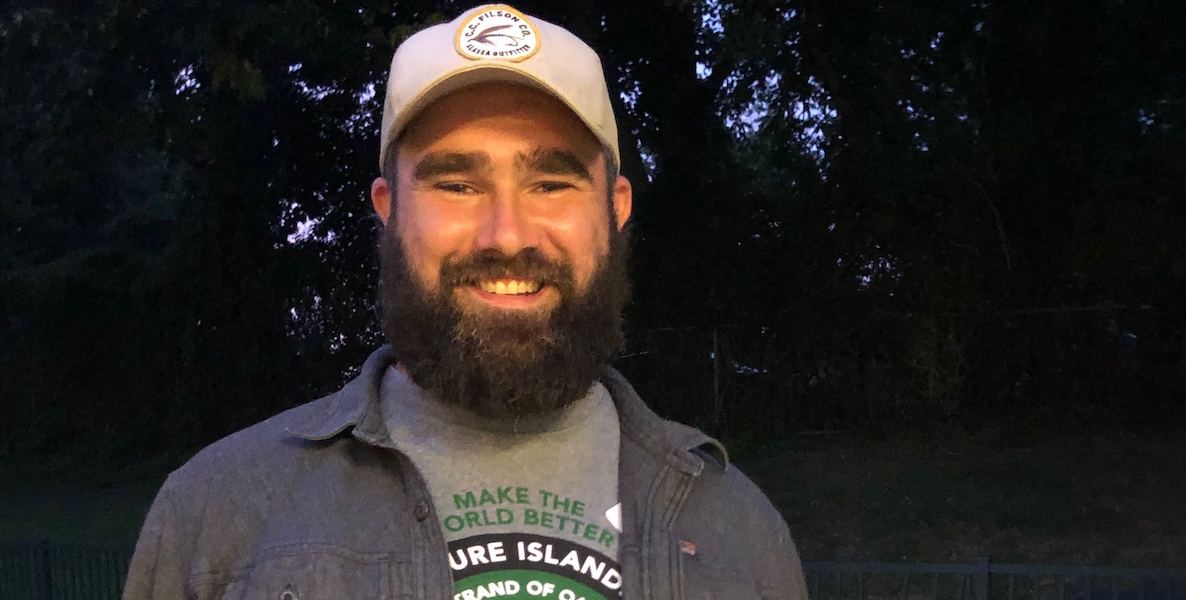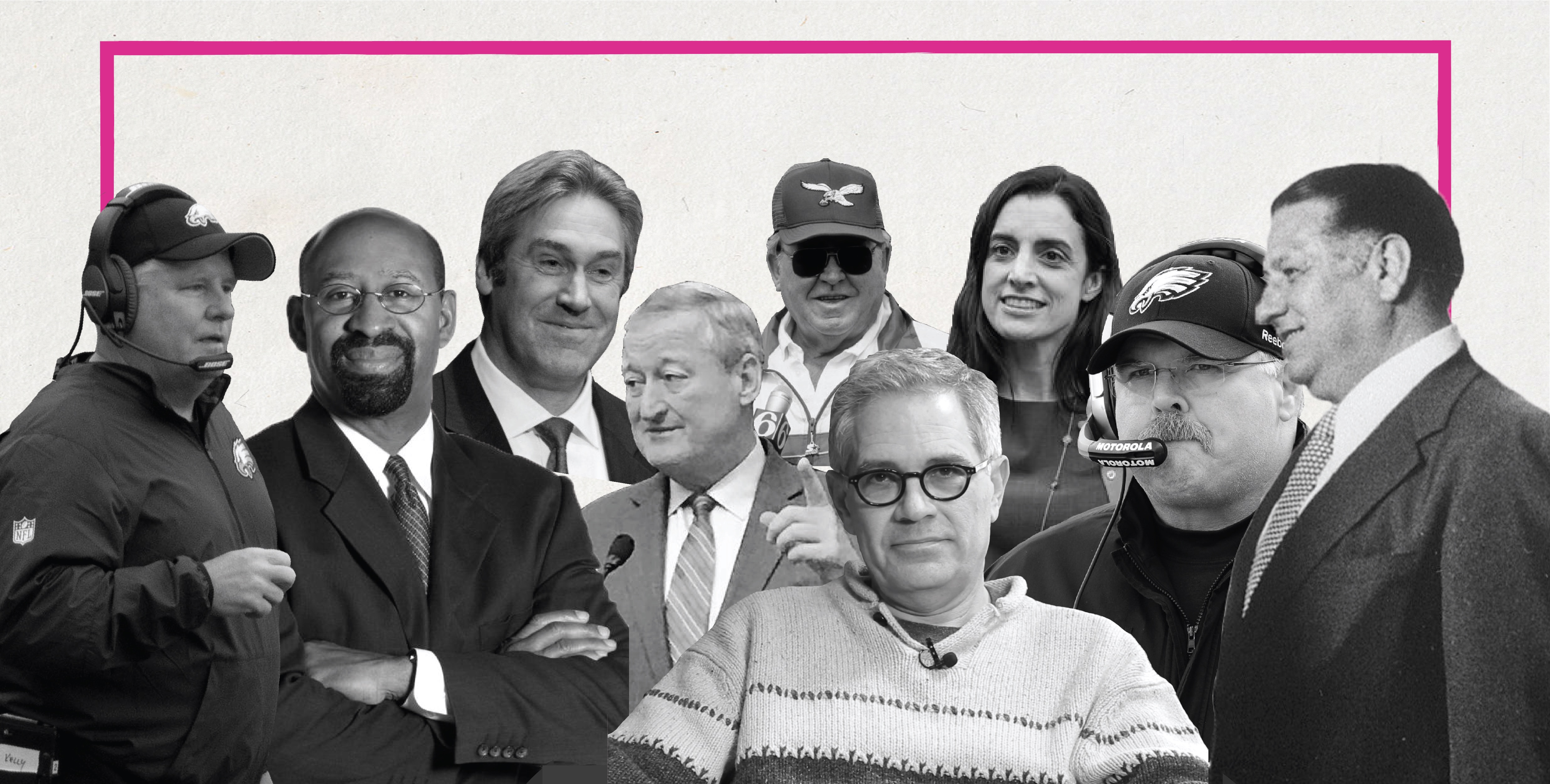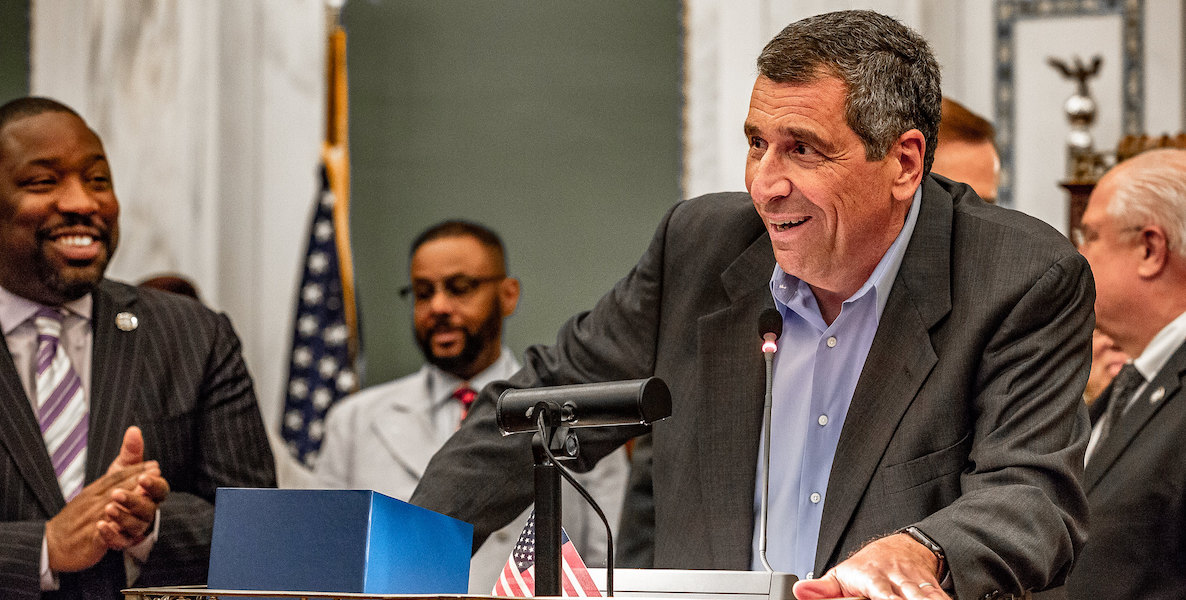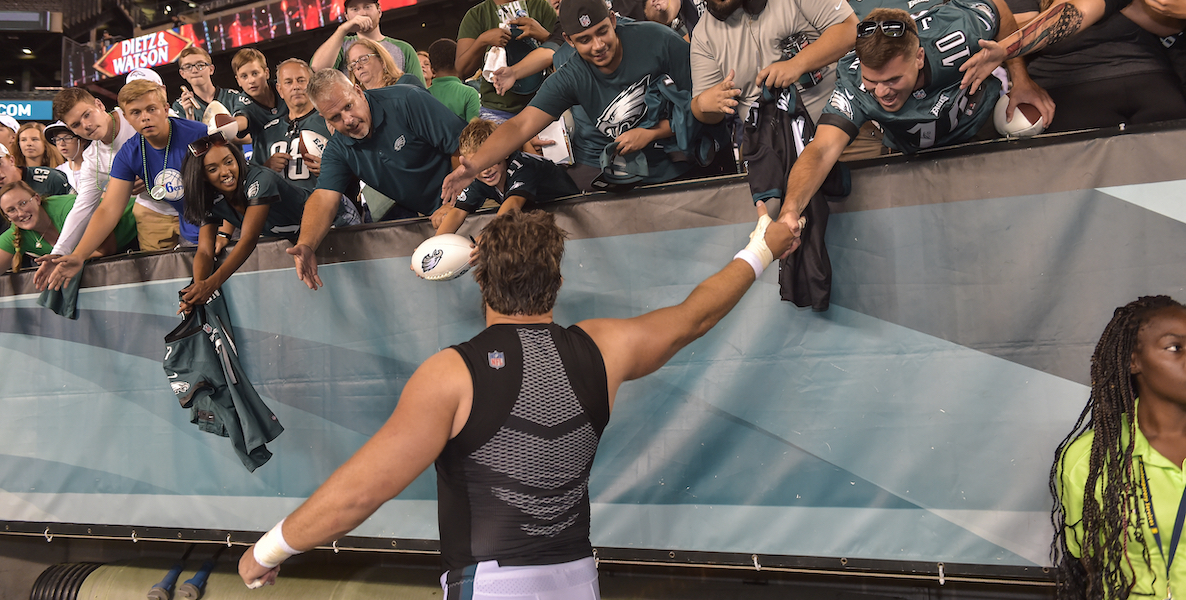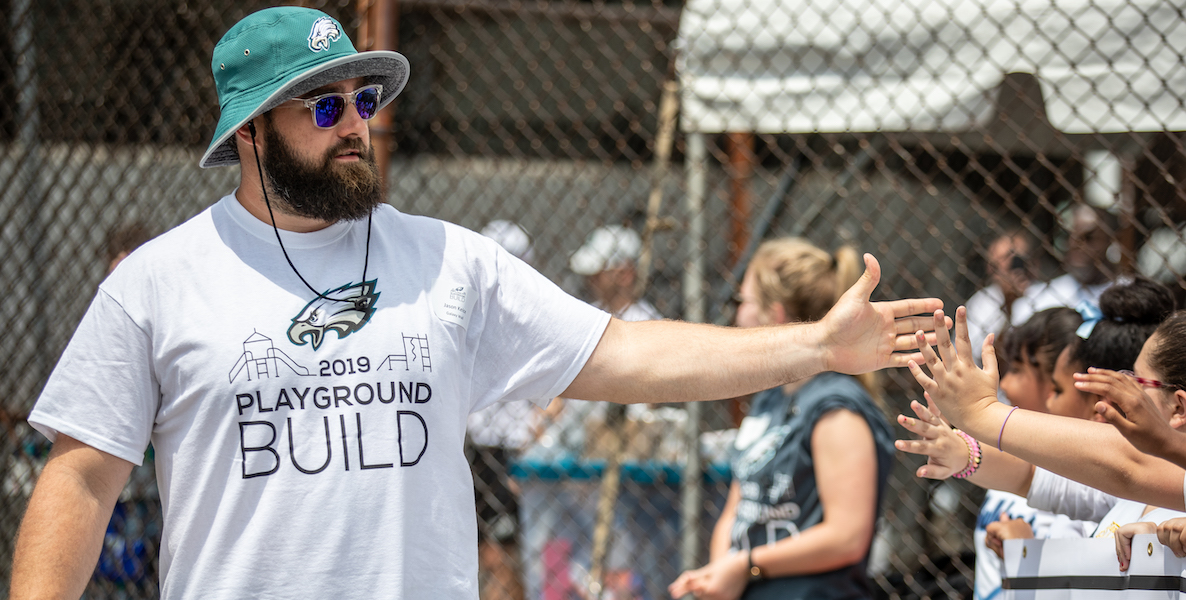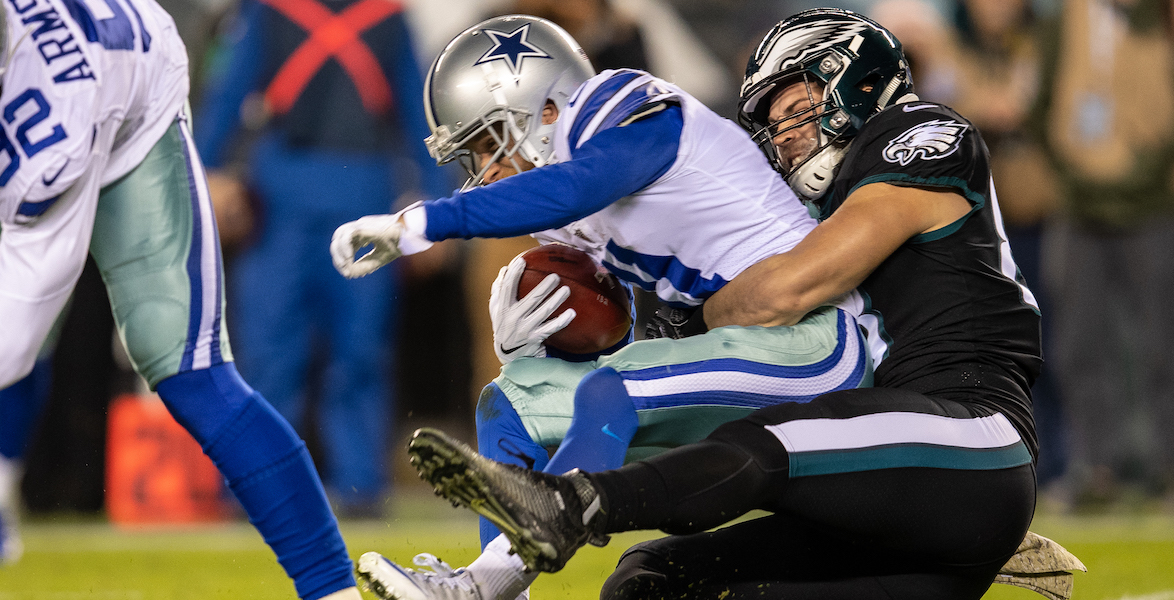I’ve attended one NFL game in my lifetime: Philadelphia Eagles vs. Dallas Cowboys, week 17 of the 2017 season (aka our Super Bowl season, thankyouverymuch).
![]() Neither team had anything to play for, and the resulting 6-0 Cowboys win was unwatchable. Most memorable were the few Cowboys fans, sauntering in their jerseys, in our stadium. I couldn’t believe they were bold enough to wear those jerseys in our house! I also half expected and half couldn’t believe how they were treated. Eagles fans received this offense as an invitation to heckle, jeer, and mock these poor bastards for simply existing in our stadium.
Neither team had anything to play for, and the resulting 6-0 Cowboys win was unwatchable. Most memorable were the few Cowboys fans, sauntering in their jerseys, in our stadium. I couldn’t believe they were bold enough to wear those jerseys in our house! I also half expected and half couldn’t believe how they were treated. Eagles fans received this offense as an invitation to heckle, jeer, and mock these poor bastards for simply existing in our stadium.

Prefer the audio version of this story? Listen to this article in CitizenCast below:

What has happened between these two teams, these two fanbases, these two cities, that makes this rivalry so intense? As we lead up to Eagles vs. Cowboys this Sunday, let’s examine where this rivalry comes from, and how we can harness our relationship to rivalries.
“We hate them. They hate us. Our fans hate each other. Pure hatred.” —former Eagles nose tackle Bennie Logan
There are 32 teams representing 32 different cities across the country. Yet, only one team calls themselves America’s Team—the Cowboys. Even worse, they gave themselves that nickname. Let’s say you go into the office tomorrow, and ask everyone to call you “America’s Dude.” They might, but only to make fun of you.
Though the nickname was coined in a 1978 team highlight film, it stuck because of the 1990s. The Cowboys enjoyed a run of success that earned Super Bowl wins in 1993, 1994 and 1996. These wins coincided with a time when the NFL itself exploded in popularity thanks to the league’s expansion to cable television. The Cowboys were successful when the nation discovered the NFL, and that created a generation of Cowboys fans. The franchise is still considered the most valuable NFL franchise, estimated at $2.1 billion.
Every team has a reason to hate the Cowboys, but we have many. Shall we begin our examination of the Eagles-Cowboys rivalry by looking at the stadiums in which they play?.
“I don’t care how many games you win … as long as you beat the Cowboys.” —a fan, to Andy Reid
Current owner Jerry Jones, who has never met a microphone he didn’t like, opened AT&T Stadium in 2019. The stadium cost $1.15 billion, is the fourth largest in the NFL, and received the then-Guinness World Record for World’s Largest High-Definition Video Display, hanging over 60 yards of the football field below. It’s claimed that the stadium uses more electricity than the entire country of Liberia. The stadium is a temple to the excess of America’s Team, built to hold the bombastic soul of the Cowboys.
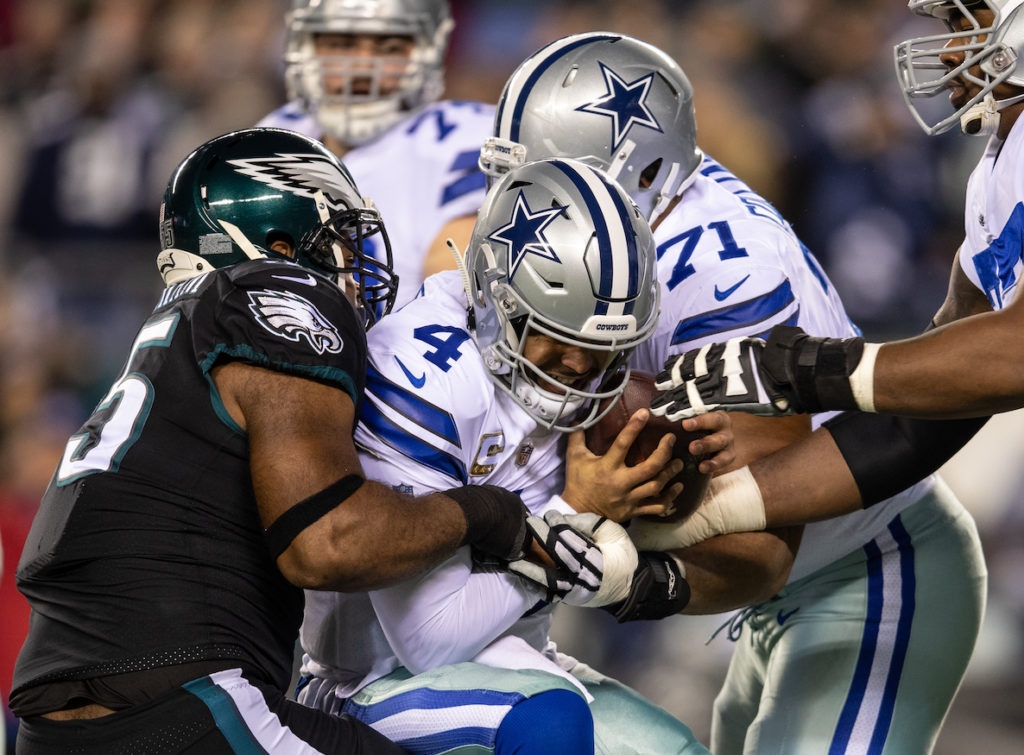
For the Eagles, their temple is not the current Lincoln Financial Field, but the now-defunct Veterans Stadium. Veterans Stadium, completed in 1971 and demolished in 2004, was designed to host baseball and football games, and consequently was unfit for either sport. We remember it today at the end of its life: raucous, leaking, and falling apart. The concrete house of horrors remains the only sports arena to have ever housed a court and a prison. If AT&T Stadium is the id that holds the glitz of the Cowboys, then Veterans Stadium is the ego that encapsulates the blue-collar body of the Eagles.
“Of course, I don’t like the Cowboys It’s just the arrogance. The organization. ‘America’s Team.'” —Eagles offensive tackle Jason Peters
Though our stadiums are hundreds of miles apart, the division ensures that we’ll always remain close. The NFL is divided into eight divisions, with the Eagles and Cowboys in the NFC East (along with the Giants and Redskins). Each team in the division plays twice per season, and the division winner earns a playoff spot. By design, these teams are familiar.
![]() Recently, the NFL has been scheduling these division games at the end of the regular season, staging dramatic elimination games to bump one another from the postseason. By design, the league breeds contempt.
Recently, the NFL has been scheduling these division games at the end of the regular season, staging dramatic elimination games to bump one another from the postseason. By design, the league breeds contempt.
The Eagles and Cowboys have played 120 times, with the Cowboys leading the series 68-52. That stat is rife with signature wins, bitter losses and insults—both professional and personal. The rivalry goes back to the 1960s, but looking at the recent generation of games gives us all the context we need.
- 1987: Buddy Ryan accuses Tom Landry’s Cowboys of running up the score against Eagles replacement players (due to a players strike, which Cowboys players ignored, of course). Not the bigger man, Ryan returns the favor in subsequent games.
- 1989: The Bounty Bowls, where Cowboys players accuse Ryan of offering a reward to anyone who injures a Cowboys player, which Ryan denies.
- 1992-1995: Twice, the Cowboys eliminate the Eagles from the playoffs, en route to Super Bowl wins. Showoffs.
- 1999: Receiver Michael Irvin is tackled at Veterans stadium, suffering a spinal injury that ends his career. Eagles fans “cheer” (for the third down stop, not the injury, c’mon people).
- 2010, 2012 and 2014: Cowboys eliminate Eagles from the playoffs.
- 2013: Eagles eliminate Cowboys from the playoffs.
These may sound quaint in retrospect, but so many moments in this rivalry were derided by pundits as new lows in sportsmanship. And although the Giants and the Redskins play in the same division, those games don’t matter the same way.
The recent-era Giants are a mirror to their well-respected but aww-shucks persona of quarterback Eli Manning. Sure, they’ve won the Super Bowl twice, but those games were instant classics over the even-more-hated New England Patriots. The Redskins have been one of the worst run teams under owner Daniel Snyder. Except for one surprise season, they have been and will be irrelevant.
That leaves only the Cowboys as competitive and threatening. Those games between the blue-collar Eagles and the new-money Cowboys are underscored by these opposing values, that not only don’t get along, but are fundamentally offensive to one another. These aren’t just football games; they are battles in the American war of class and culture.
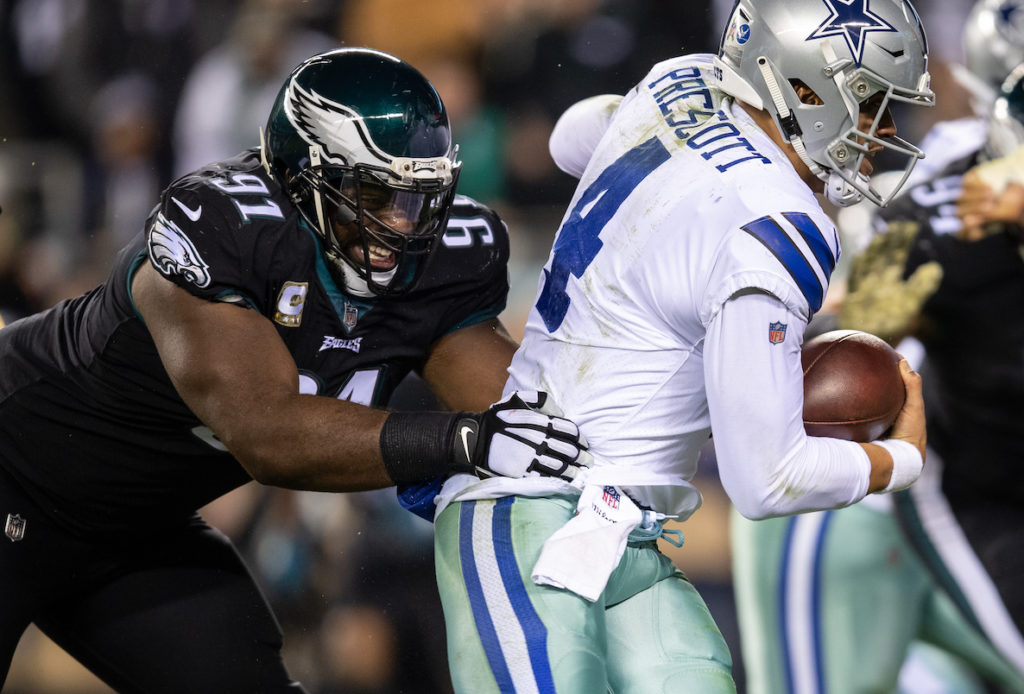
This week, the Eagles and Cowboys are 3-3, with the division lead at stake going into Sunday’s game. Both teams have at times looked impressive, and at others looked pathetic. After last week’s loss, Cowboys owner Jerry Jones admitted his team was not among the NFL elite, but emphasized, “I think it’s all about where you end up in your division.”
Eagles coach Doug Pederson was a little more direct. “…[W]e’re going down to Dallas and our guys are going to be ready to play. And we’re going to win that football game, and when we do, we’re in first place in the NFC East.”
“I prefer a city like Philadelphia… It’s not about the glitz and glamour. It’s about rolling up your sleeves, fighting, and earning everything you get.” —Eagles safety Malcolm Jenkins
Do rivalries occur naturally, or are they manufactured by circumstance? The answer is both. The NFL schedule systematically creates rivalries amongst teams. But that alone doesn’t make this rivalry great. The schedule ensures we meet often. The competition and the culture gives searing stakes to each meeting of the Eagles and Cowboys. And when they meet, our desire to perform well and overcome this opponent reaches new heights. And that’s the part of any rivalry we should seek to uphold.
![]() Rivalries can be a useful measuring stick. Rivalry can serve as a framework that focuses a goal, gives purpose to critical feedback, increases accountability and clarifies solutions. A good rivalry is agonistic in the best way, pushing us forward, and weaponizing our basic human impulses to provide extra motivation for positive gains.
Rivalries can be a useful measuring stick. Rivalry can serve as a framework that focuses a goal, gives purpose to critical feedback, increases accountability and clarifies solutions. A good rivalry is agonistic in the best way, pushing us forward, and weaponizing our basic human impulses to provide extra motivation for positive gains.
But rivalries can also become toxic if they escalate from friendly to something more sinister, as, for example, our current political climate makes all too clear. At the Eagles game I attended, some of the mocking was in good fun, but many chants felt right on the edge of sinister. And towing that line felt dangerous, because in a crowd, what begins as implicit violence can escalate to explicit violence. An infamous incident at the old Veterans stadium includes the shattered ankle of a fan who brought a Giants fan as a guest.
Philadelphia doesn’t actually hate Dallas as a municipality. Our residents don’t all hate their residents. But the fact remains that whoever wins the NFC East is one step closer to the Super Bowl, and these games are extremely important. This rivalry should be a competitive measure of each team’s progress, and not an antagonistic bloodsport to be won at any cost. For two flawed but good teams vying for the NFC East division lead, this Sunday has the makings of another great chapter in a historic rivalry. And we want our team to beat the living snot out of theirs.
Photos courtesy the Philadelphia Eagles


